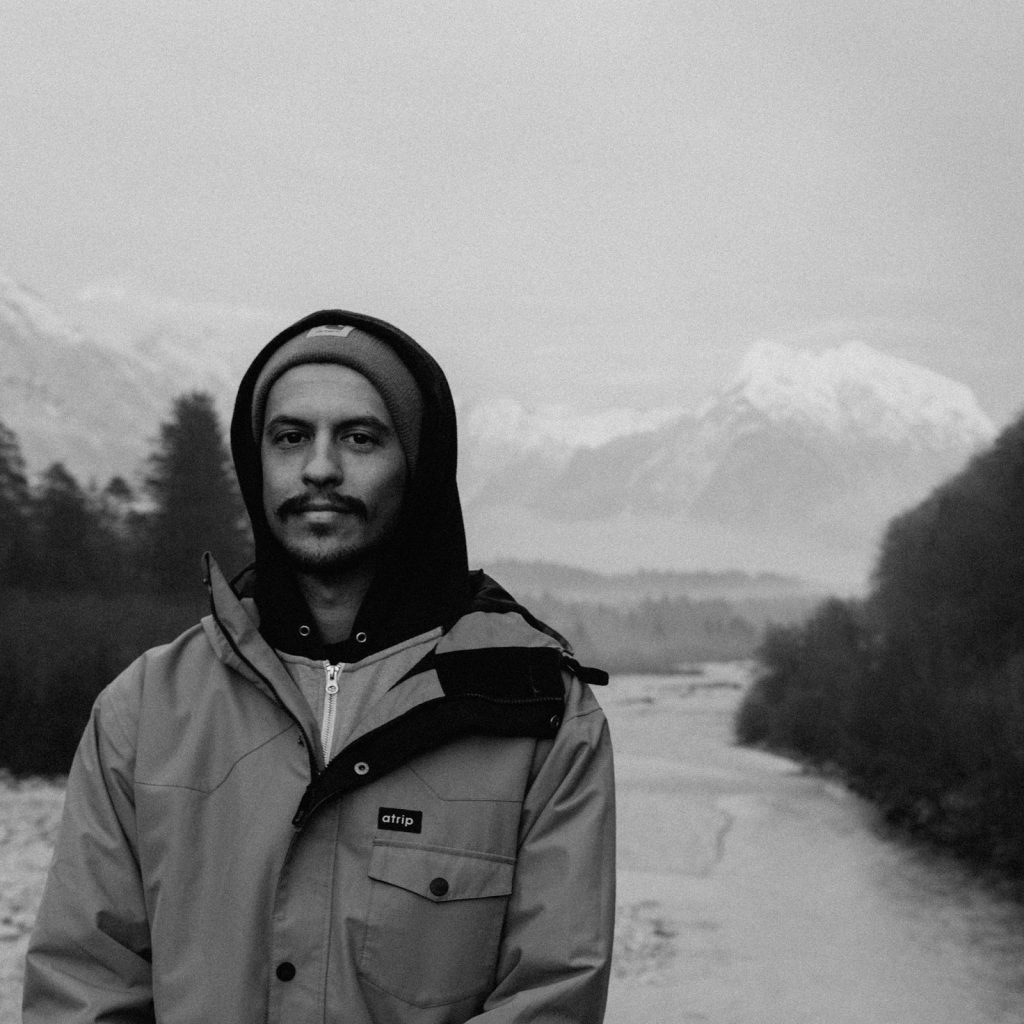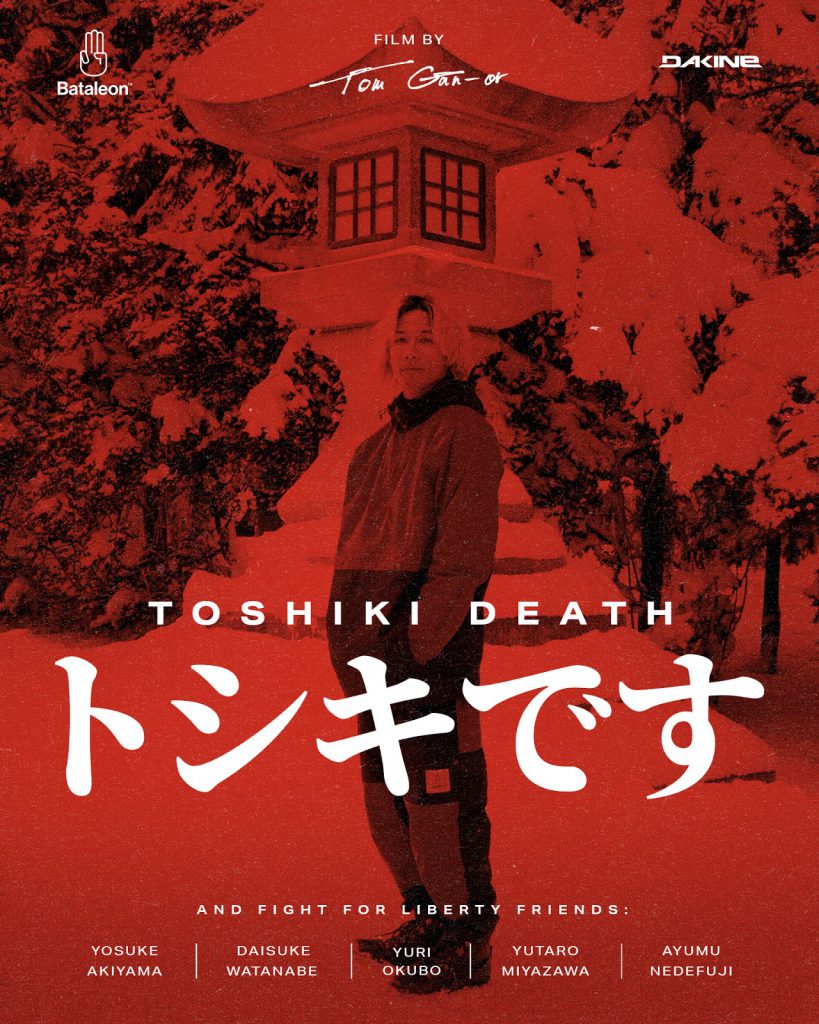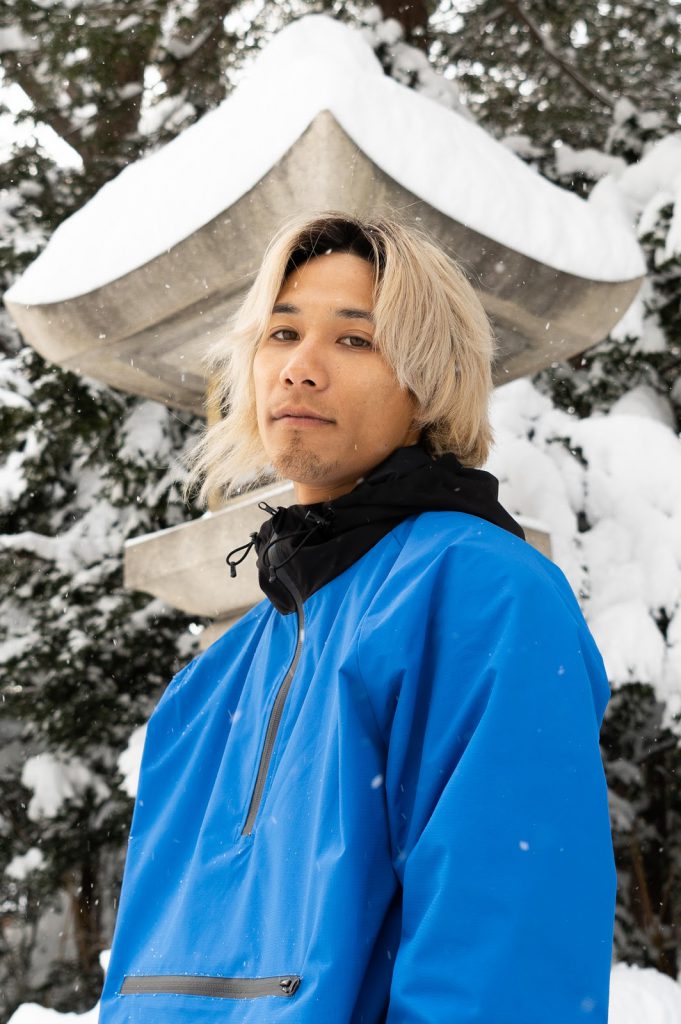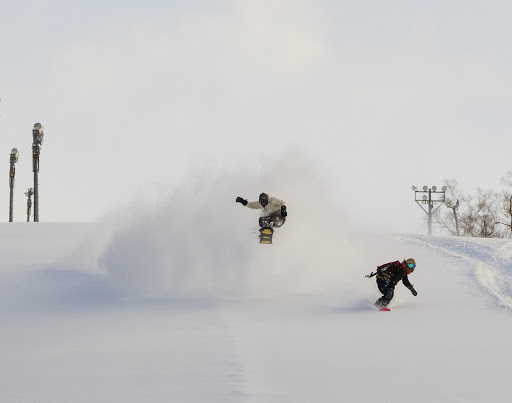Tom held a camera for the first time while snowboarding on a mountain in France. Working at a ski resort, Tom filmed his friends snowboarding, one of which was a top snowboarder of Israel. What started as a fun activity eventually grew to a career for Tom.

In 2020, Tom released his latest short film, “Toshiki Death”. Returning full circle to his first video on the ski mountain, Tom offers an intimate glimpse into the life of Toshiki Yamane, a professional snowboarder, in the frozen alps of Hokkaido. ISRAERU was able to speak with Tom to get a look into his journey to becoming a videographer, as well as an in depth look into the creation of “Toshiki Death”

目次
Tom’s decision to become a videographer
Once Tom discovered his love for videography after filming his first video in France, he decided to apply to University to study his newfound passion. Tom was accepted into the Visual Communication Department at Bezalel Academy.
“I had no idea what I am going to do with it other than the fact that it is very interesting to me. It was only in my third year that I finally realized that video creation was my direction, after being exposed to a lot of other options like graphic design and animation.”
As an extreme sports enthusiast, Tom watched many skiing, skateboarding, and surfing videos, but felt that the art form missed depth.
“Most of the extreme sports movies I know deal with the performance of the trick, without a story behind it. in my perspective, it has a bit of a shallow message.”
This is when Tom took the best of both worlds and decided to start creating extreme sports movies with a deeper touch.
Professional snowboarder Toshiki Yamane
In order to gain experience, Tom sent emails to many snowboard companies offering his services, even without payment. After a long period of time without success, Tom received a reply from a large snowboarding company, who offered him a once in a lifetime opportunity.
“I became a photographer for Bataleon Snowboards. This company had a group of athletes that they sponsored and I traveled with them for two months. Toshiki was part of this team, and even though he did not speak a word of English we had excellent communication.”

Tom told one of the company's managers that he wanted to make a short film about Toshiki. And in the winter of 2020 after his graduation, Tom took a snowboard and a camera and flew to Hokkaido.
The creating experience in Hokkaido
“If I had to describe the experience in just one word – wow.”
Japan was different from anything else Tom has known before. The completely different environment left him starstruck.
“I would look at people, TV shows, or the street and I realized that there are different game rules here.”

Although it would have helped to be able to plan, Tom and his team had no way of planning out the film. The first reason was because of the unpredictable nature of the weather, the amount of snow, whether it was sunny or cloudy, had a huge impact on the feeling of the movie. Second, the language barrier between the Israelis and Japanese was too much of a hurdle to be able to give prior planning. In order to have enough footage for any storyline, Tom was never seen without his camera.

“I was with the camera on me at any given moment, even if I went to the bathroom or the onsen.”
The world of professional snowboarding
With the start of the pandemic, Tom was forced to return to Israel. This also ended the filming period earlier than expected. Tom and the film’s screenwriter, Jason Danino Holt, went through what they had and discussed how to progress with the film.

“We decided to ask Toshiki questions, and we sent him about 150 questions. Many topics are not talked about in snowboard movies, such as his mental state and emotions. I asked Toshiki if he ever thought about suicide, I asked some difficult questions. Another example is, questions concerning the financial situation because I have always been interested in how a snowboarder makes a living.”
Soundtrack editor Udi Naor, also known as BEATFOOT, translated into Japanese the song “Second Bird” by the poet Nathan Zach, and it was recorded by a Japanese singer named Yurika Hanashima. During the competition scene of the film, the song is played in the background.
“To me it's ingenious, I've never thought of using it. But in the end, the goal of the film is to create something different and Udi took it to the next level.”
After its release, the film has mostly been featured in snowboard magazines around the world. The film is currently participating at a number of festivals around the world, but most of the answers will only be at the end of the year.
“The distribution was quite impressive and I enjoyed seeing the reactions because it confirmed to me what I thought before I joined Bezalel, that people are looking to hear a good story.”






